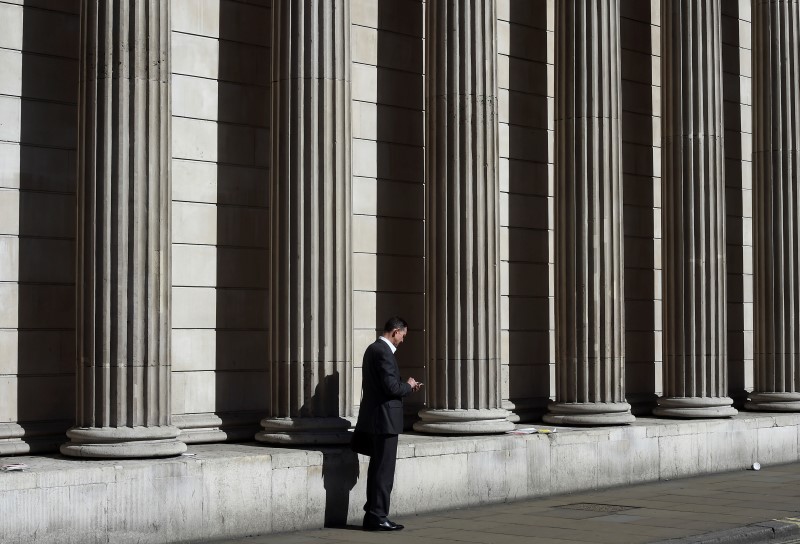By Jemima Kelly and Patrick Graham
LONDON (Reuters) - A 9-0 vote from the Bank of England to keep interest rates steady quashed speculation that some officials might vote for rate cuts on Thursday, but it offered sterling only a temporary reprieve from Brexit concerns.
A tweet by Sky TV's economics editor suggested just over an hour before the decision that two members of the central bank's Monetary Policy Committee were "on the verge" of voting for a further cut in rates from their record lows, which drove the pound downwards.
The unanimous decision to leave rates unchanged, therefore, initially prodded sterling higher, with the currency paring some of its earlier losses against the dollar and euro.
But in accompanying minutes from the MPC's latest meeting, policymakers also said a British departure from the European Union would create uncertainty and probably damage the economy in the short run -- the strongest Brexit warning yet from the Bank of England.
Sterling fell back to $1.4133 by 1400 GMT, half a percent down on the day, leaving it around the level it traded at before the rate decision. Against the euro, it fell 0.5 percent on the day to 79.79 pence.
"As per usual the devil is very much in the detail," said Foenix Partners sales trader Tom Floyd, highlighting the prominence given to the June 23 referendum in the BoE minutes.
"With rising domestic inflation and growth driving risk assets higher while sterling remains in the doldrums, a look to the polls rather than the central bank may be more useful forecasting tools for future currency moves."
This week, data showed consumer price inflation touched a 15-month high last month of 0.5 percent, while the core inflation measure closely watched by the BoE hit 1.5 percent - its strongest since October 2014. But policymakers said they expected inflation to recede this month.
In March the minutes said that a "significant proportion" of sterling's recent weakness, which helps lift inflation, reflected uncertainty around the referendum, and this month they added that it was therefore not clear how long this would last.
The pound has lost more than 7 percent this year on a trade-weighted basis and touched a 2-1/2-year low last week, largely driven by Brexit fears.
"Investors remain short on sterling, as there is no material reason to buy the currency in its current guise," said Tobias Davis, Western Union's head of corporate treasury sales.
